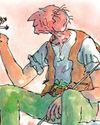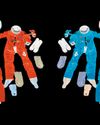
New Zealand is at once young and volatile, ancient and settled. Its surface cracks and steams with earthquakes and geothermal springs, bubbles and boils with volcanoes and mud pools.
On the other hand, this is old country. New Zealand, with New Caledonia, the Chatham Islands and a few others, are peaks of sunken Zealandia, Te Riu-a-Māui, Earth's most recently recognised continent. Zealandia is 94% under water, half the size of Australia, and a billion years old.
Zealandia began as a thin strip of land joined to the eastern slopes of Gondwana, the ancient Southern Hemisphere supercontinent. About 80 million years ago, it gradually undocked from what would become Australia, unzipping the Tasman Sea and rafting northward from its birthplace in the Antarctic Circle into the ancestral-Pacific. For the next 40 million years or so, in a process called thermal subsidence, Zealandia stretched and cooled, losing buoyancy to such an extent that it almost entirely sank beneath the water.
Its land area was at a minimum 23 million years ago, during the Duntroonian geological stage of maximum marine inundation, the "Oligocene Drowning". Imagine Central Otago and Fiordland as part of an archipelago in a warm sea. Beginning at the same time, a new boundary formed between the Australian and Pacific tectonic plates. Their grinding together lifted and continues to lift New Zealand, thrusting the Southern Alps upward 10 to 20 millimetres a year.
One shallow seabed that was blanketed in millions of years of greensand, mud, and marine snow - those expired sponges, coral, diatoms, plankton and sea urchins that drifted down to form limestone - was in the Waitaki District. This stunning, 7214sq-km porthole into New Zealand's watery past straddles the border between Otago and Canterbury and stretches from the Pacific almost to the Southern Alps.
Denne historien er fra August 19-25 2023-utgaven av New Zealand Listener.
Start din 7-dagers gratis prøveperiode på Magzter GOLD for å få tilgang til tusenvis av utvalgte premiumhistorier og 9000+ magasiner og aviser.
Allerede abonnent ? Logg på
Denne historien er fra August 19-25 2023-utgaven av New Zealand Listener.
Start din 7-dagers gratis prøveperiode på Magzter GOLD for å få tilgang til tusenvis av utvalgte premiumhistorier og 9000+ magasiner og aviser.
Allerede abonnent? Logg på

Sights to behold
Being blind didn't deter Aucklander FRASER ALEXANDER and his partially-sighted wife from travelling in Europe. Their memories were shaped by sound, touch and smell.

Pages of delight
Charming survey of children's literature throughout the centuries should be treasured and reread.

Heart of the matter
Women are less likely to be diagnosed with heart disease than men, and less likely to get best treatment. Researchers are struggling with old stereotypes to right the balance.

Balaclava beats
Their paramilitary shtick is intentionally menacing, offensive and alienating, but to be fair to the hip-hop trio Kneecap, their infamous balaclava is disarmingly hilarious. Kneecap, the 2024 movie that offers a fictionalised account of their rise to fame, is a Bafta- and Oscar-nominated Northern Irish film sensation.

Friends like these
One of the stranger characteristics of the populist oligarchy mobilising around Donald Trump's new administration is the interest taken in the domestic politics of the UK.

Irresistible force
A new documentary about gentle rugby giant Jonah Lomu reveals little but is a reminder of what made him special.

Fleeing the nest
A tale of building a new life after an abusive relationship makes for an impressive debut.

Life less ordinary
Chelsie Preston Crayford follows a big 2024 with a new comedy role and putting the finishing touches on her debut feature as a director and writer.

Not on our watch
Nasa, one of the most technologically advanced organisations on the planet, made prospective astronauts take inkblot tests to determine their sexuality.

No free lunch
The new, cut-price school lunch programme will shut out many community providers. But will bulk-supplied meals meet children’s needs?